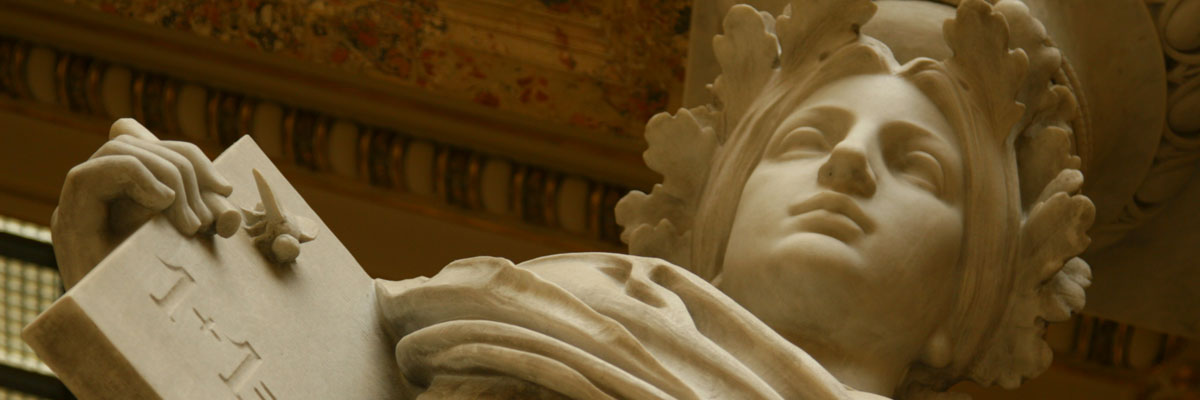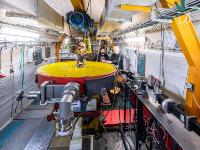
News archive
Search
Selected range: all newsWhat happens to public trust when a pandemic hits? Why do some people turn away from health authorities while others become more compliant? In the new CERGE-EI Working Paper titled “Pandemics’ Backlash: The Effects of the 1918 Influenza on Health Attitudes and Behavior,” Christian Ochsner, economist and Assistant Professor at CERGE-EI (the joint workplace of Charles University and the Economics Institute of the Czech Academy of Sciences) explores the long-term effects of pandemic mortality on public health-policy skepticism—using a surprising historical case: The Spanish flu pandemic.
They observe the landscape from an altitude of around 300 meters. And it’s precisely this vantage point that allows aerial archaeologists to read what occurred on the ground – sometimes thousands of years ago – and to detect hidden structures. All you need is an eye for seemingly minor details, like subtle differences in the color or height of grain crops. We joined Martin Gojda from the Institute of Archaeology of the CAS, Prague, on an expedition from Roudnice nad Labem Airport in June 2024, as part of the event Archeologické léto (Summer of Archaeology). This photo story first appeared in the 1/2025 issue of A / Magazine, published by the Czech Academy of Sciences.
How did our prehistoric ancestors live in the spot where one of the most anticipated transport projects in the Czech Republic is now taking shape – that is, the area around the Prague Ring Road (Pražský okruh)? And what remains did later cultures leave behind as they settled this region? Archaeologists have now wrapped up their fieldwork over a 126‑hectare site, collecting thousands of artifacts awaiting detailed study. At a press conference held on 12 June 2025 at the Czech Academy of Sciences, experts unveiled a series of fascinating finds, including Neolithic stone tools and amber beads that were once weighed against gold.
As a kid, he’d spend hours spying on grasshoppers, roly-polies, and ants, totally enthralled. And that love of all things creepy-crawly has never left Michal Kraus, now a researcher at the Institute of Microbiology of the CAS. These days, though, it’s not six- or eight-legged critters he studies, but the ones living deep inside our guts.
Our thoughts are fleeting, up in the air, hard to pin down. But once something is written down, it’s set in stone. Our ancestors understood this, which is why they came up with various ways to record what mattered most. It’s estimated that roughly 400 different writing systems exist. How did their invention shape the development of society as a whole, and what do we use writing for today? We explored its history and looked into a few fun facts in the latest issue of A / Easy magazine.
Just one cubic millimeter of the human brain can hold about as much data as 1,400 high-performance computers. But how does our memory actually work? Why is it easier for us to recall an embarrassing moment from childhood than a book we read last week? And how can we “hack” memory to our advantage? Find out in our article first published in the 1/2025 issue of A / Easy Magazine.
One third of the world’s production of electron microscopes comes from Brno, Czech Republic. It’s no coincidence – the city’s history in the field dates back to the 1950s, when the renowned physicist Armin Delong helped lay its foundations. The tradition continues to thrive, as evidenced by the new Center for Electron Microscopy, officially opened on 12 May 2025 by the Institute of Physics of Materials of the Czech Academy of Sciences (CAS).
Czech waste policy relies heavily on technical and economic solutions. We tend to view what ends up in the trash as a problem and a threat, particularly to the environment, or, conversely, as a business opportunity in the context of waste management. In other countries, however, there is a broader conversation underway, one that includes social and historical dimensions as well. A fresh perspective on the topic was offered at the seminar The Hidden Lives of Waste, held on 29 April 2025 at the Czech Academy of Sciences (CAS) headquarters on Národní Street in Prague.
An inconspicuous door can be found just a few dozen meters from the mouth of the pedestrian tunnel connecting Prague’s Karlín and Žižkov districts. Beyond it? An outpost of the Nuclear Physics Institute of the Czech Academy of Sciences (CAS) – the Microtron MT25 laboratory, home to a circular electron accelerator. So what is it used for, and what makes it one of a kind?
Europe’s dependence on imported fossil fuels – especially oil and natural gas – exposes it to geopolitical blackmail and makes it economically vulnerable. That’s why it is essential to continue diversifying energy sources without replacing one dependency with another. Supporting domestic sustainable energy and innovative technologies is key also for security reasons. But these bring risks as well. Energy appears to be the Achilles’ heel of Europe, scientists warn in a report issued by the European Academies Science Advisory Council (EASAC). Physicist Antonín Fejfar and legal expert Rita Sik-Simon contributed to the report on behalf of the Czech Academy of Sciences (CAS).
The Czech Academy of Sciences (the CAS)
The mission of the CAS
The primary mission of the CAS is to conduct research in a broad spectrum of natural, technical and social sciences as well as humanities. This research aims to advance progress of scientific knowledge at the international level, considering, however, the specific needs of the Czech society and the national culture.
President of the CAS
Prof. Eva Zažímalová has started her second term of office in May 2021. She is a respected scientist, and a Professor of Plant Anatomy and Physiology.
She is also a part of GCSA of the EU.









